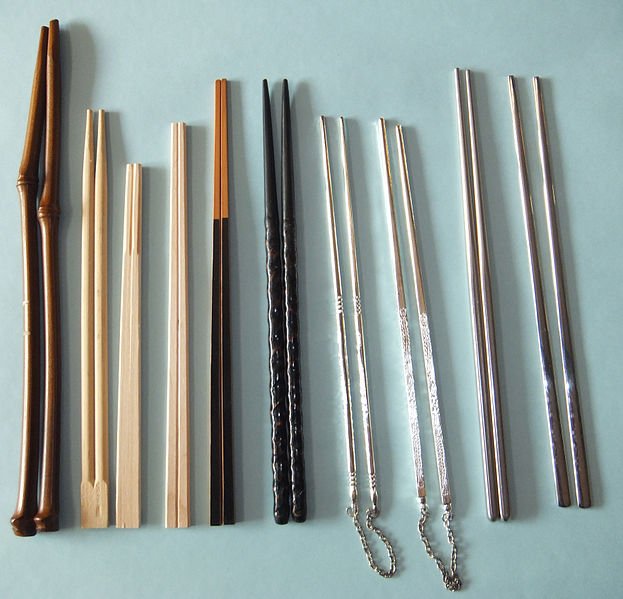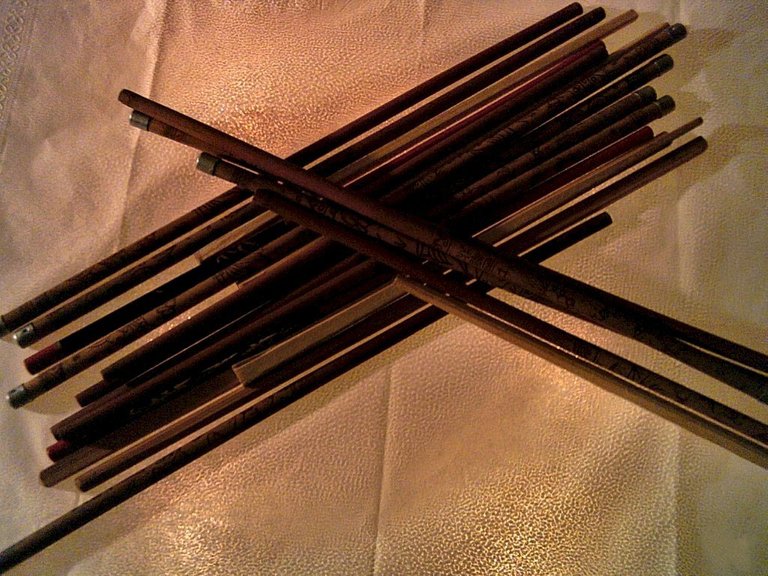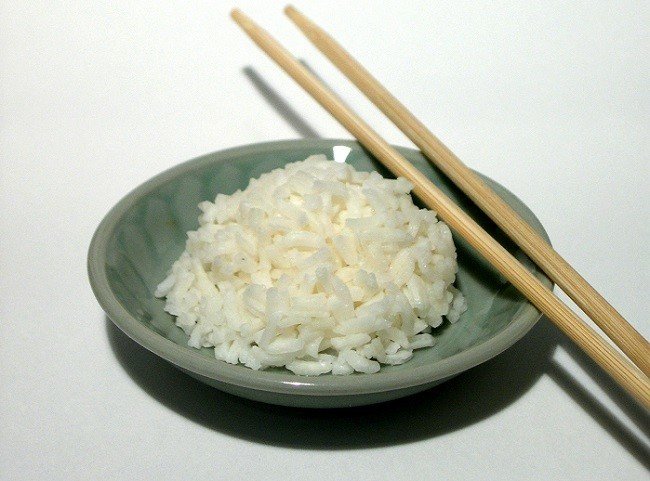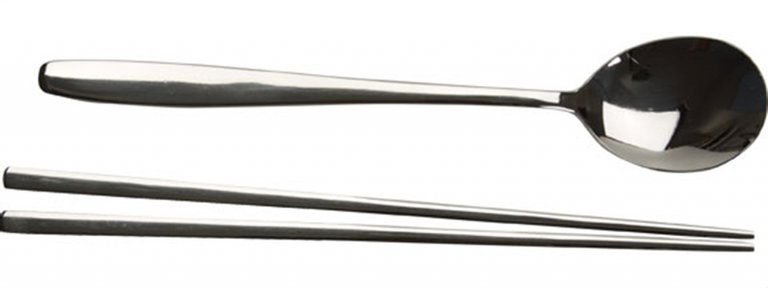It is known that China, Japan and Korea are among the most famous Asian countries that have a special character in cooking, and are usually eaten using eating sticks which have become an essential part of Asian culture and dating more than 5,000 years ago and were first introduced in China and then spread to Japan and other countries.
據了解,中國,日本和韓國是亞洲最著名的烹飪特色國家之一,通常使用吃棒棒糖,已經成為5000多年前成為亞洲文化的重要組成部分,首先在中國引進,然後傳播到日本等國家。
من المعروف أن الصين واليابان وكوريا من أشهر الدول الآسيوية التى لها طابع خاص في الطهي، وعادةً ما يتم تناول الطعام باستخدام عصي الأكل والتي أصبحت جزء أساسي من الثقافة الآسيوية، ويرجع تاريخها لأكثر من 5000 سنة مضت وقد ظهرت لأول مرة في الصين ومن ثم انتشرت إلى اليابان وباقي الدول.

The sticks were first used to stir the food on the fire, where the food was cut into small pieces to cook quickly for lack of fuel so it was easy to pick up with eating sticks. Some may think that Chinese, Japanese and Korean sticks are similar, but there are a number of differences.
這些棍子首先用於在火上攪拌食物,食物被切成小塊,因為缺乏燃料而快速烹飪,所以很容易用吃棒子拿起。有些人可能認為中國,日本和韓國的棍棒是相似的,但有一些差異。
كانت هذه العصى تُستخدم في البداية لتقليبالطعام المطهو على النار، حيث كان يتم تقطيع الطعام إلى أجزاء صغيرة لطهيه سريعًا لقلة الوقود لذا كان من السهل التقاطها بعصي الأكل. وقد يعتقد البعض أن العصي الصينية، اليابانية والكورية متشابهين ولكن على العكس فهناك عدد من الاختلافات بينهم.
Chinese eating sticks - 中國人吃棒 - عصي الأكل الصينية

The Chinese are the first to use sticks in eating more than 5,000 years ago. The Chinese sticks are made of wood and have a rectangular shape with a smooth, blunt finish, as well as longer and thicker than Japanese and Korean sticks.
中國人是五千多年前第一個使用棒棒的人,中國人的棍棒是由木頭製成的,長方形,平滑,平整,並且比日本和韓國的棍棒更長,更厚。
الصينيون هم أول من استخدموا العصي في تناول الطعام منذ أكثر من 5000 عام، وتتميز العصي الصينية بأنها مصنوعة من الخشب ولها شكل مستطيل مع نهاية ملساء غير حادة، بالإضافة إلى أنها أطول وأكثر سمكًا من العصي اليابانية والكورية.
Japanese eating sticks - 日本人吃棒 - عصي الأكل اليابانية

Japan introduced distinctive types of eating disobedience in different styles suited to various purposes including cooking, eating or candy. Japanese used various materials in the manufacture of sticks such as wood, plastic, bone and metal, in addition to the disobedience made of ivory and used specially at special occasions. Japanese sticks are round, shorter than Chinese and longer than Korean, and are usually made with beautiful designs.
日本引進了不同類型的不適合不同類型的適應各種目的的烹飪,飲食或糖果。日本人使用各種材料製造棒材,如木頭,塑料,骨頭和金屬,除了不服從象牙,特別在特殊場合使用。日本棍子圓形,比中國人短,比韓國長,通常是美麗的設計。
اعطت اليابان أنواع مميزة من عصيان الأكل بأنماط مختلفة تتناسب مع مختلف الأغراض بما في ذلك الطهي وتناول الطعام أو الحلوى. استخدم اليابانيون مواد مختلفة في صنع العصي مثل الخشب، البلاستيك، العظام والمعادن، بالإضافة إلى عصيان الأكل المصنوعة من العاج والتي تُستخدم خصيصًا في المناسبات المميزة. وتتميز العصي اليابانية بأطراف مستديرة، كما أنها أقصر من العصي الصينية وأطول من الكورية، وعادةً ما يتم صنعها بتصميمات جميلة مميزة.
Korean eating sticks - 韓國人吃棒 - عصي الأكل الكورية

Koreans often use stainless steel to make eating sticks. Korean sticks are characterized by rough edges to avoid falling food, as well as spoons for rice.
韓國人經常使用不銹鋼製作吃棒,韓國棒的特徵是粗糙的邊緣,以避免食物掉落,以及大米的勺子。
يستخدم الكوريون غالبًا الفولاذ المقاوم للصدأ في صنع عصي الأكل، وتتميز العصي الكورية بأطراف خشنة لتجنب سقوط الطعام، بالإضافة إلى استخدامهم للملاعق لتناول الأرز.
Hi! I am a robot. I just upvoted you! Readers might be interested in similar content by the same author:
https://steemit.com/cn/@sdd/learn-about-the-difference-between-chinese-japanese-and-korean-eating-sticks-tarf-ala-alfrq-byn-asy-alakl-alsynyh-walyabanyh
But ,
I mentioned the source above☝🏻☝🏻Thank you @cheetah ⚘⚘
Very nice article
Thanks